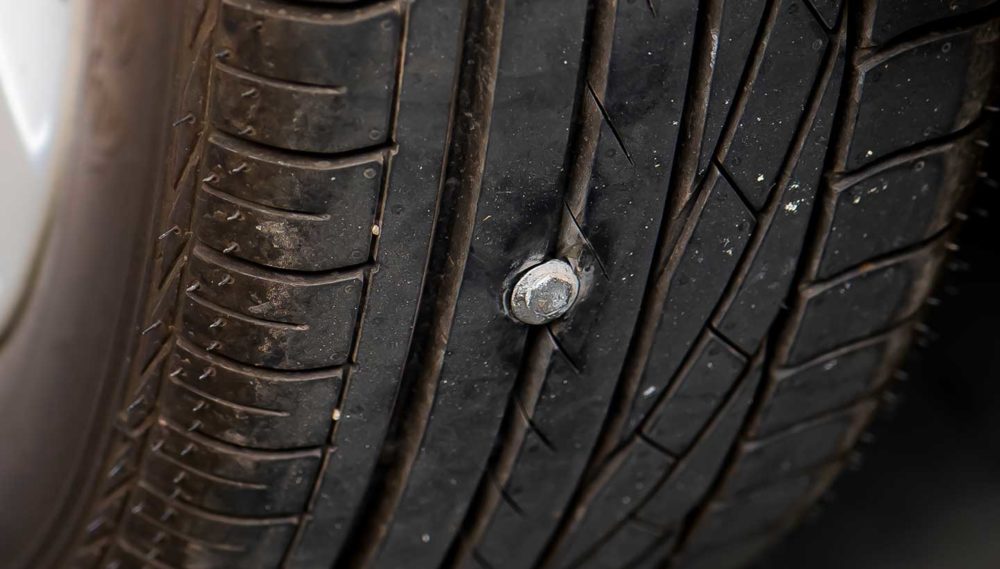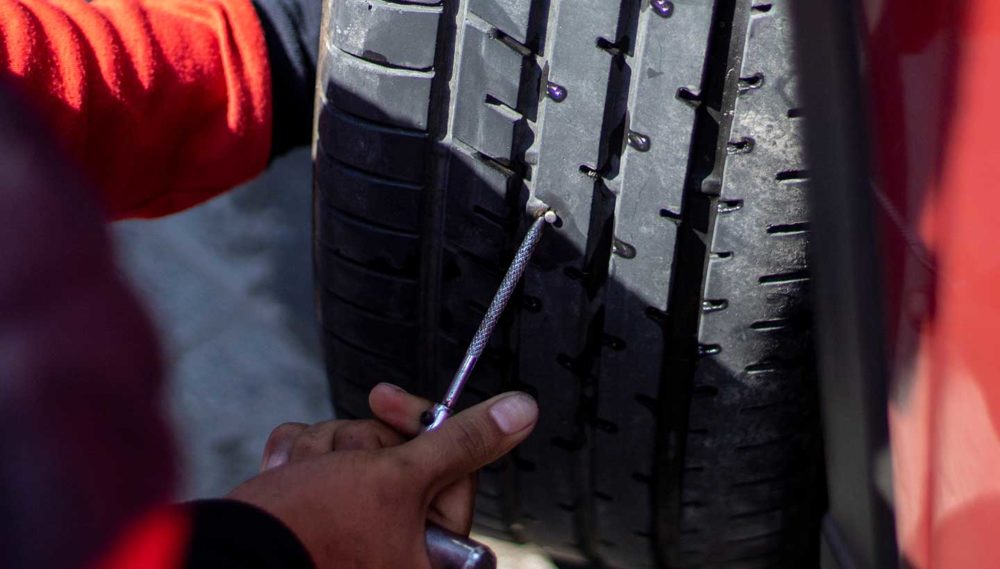Get to Know the Tip Top Tire Patch Method on Cars
26 April, 2024

For many car drivers, tip top tire repair may not be widely known. The reason is that this tire patching technique is quite rarely offered in various tire patches that are often found on the side of the road.
The easiest to find are tubeless tire patches and press tire patches at every gas station or roadside tire repairman. In fact, when compared to other tire repair techniques, tip top tire repair is considered better because it can tightly close the leak hole in the tire.
However, despite these advantages, this tip top tire patch has a slight difference in dealing with tire leaks. The reason is that to patch a punctured tire you have to remove the tire from the rim.
Because this method is considered less practical by roadside tire patches, tip top tire patches are rarely found. To find out more about tip top tire patches, let’s look at the review below:
What is a Tip Top Tire Patch?
For some people, the name tip top tire patch may not be familiar. The reason is that this technique is quite rarely found by roadside car tire repairers. Moreover, in their application, tip-top tire patches are often considered less practical.
Another name for an inner tire patch is a tip top tire patch. To repair a punctured tire, use a tire patch or rubber layer on the inside of the tubeless tire. The name “tip top” itself comes from the brand of product used to patch tires. This method is considered safer because it can close the leakhole tightly.

Advantages and Disadvantages of Tip Top Tire Patches
Even though it is considered to have the advantage that this method of tire patching is better because it can cover leaks well, tip top tire patching has its own advantages and disadvantages.
Excess:
- The level of durability is longer-lasting.
- It doesn’t leak easily.
- This type of tip-top patch can be used to patch a punctured part of the tire wall, which other types of patches cannot be used to patch, considering that the tire wall does not have steel fiber construction.
- Can patch tires that are punctured and have large, gaping holes.
Lack:
- The price is relatively more expensive than the string method.
- The work process takes a long time and is not practical because you have to dismantle the tire.
- Not all tire repairmen use this method.
Technique for How to Patch a Tip Top Tire
The following is the process of patching a tip top tire:
- Remove the car wheels first, then remove the tires from the rims.
- Remove sharp objects that have landed on the tire.
- Drill the leak hole to adjust the size of the hole with the rubber umbrella stem for the tip-top tire patch.
- The area around the drilled hole is then sanded using a grinder to form a seat pattern where the rubber is attached.
- The area that has been plastered is then glued, and a rubber umbrella is attached.
- The step for attaching the rubber umbrella is to insert the rubber stem from inside the tire, then pull it with the help of pliers from the outside of the tire tread.
- After the rubber sticking process, the tire is generally given additional heat-resistant glue or a hot press around the surface of the top rubber and inner rubber so that the hole is closed optimally. Leave the tire for 10–20 minutes until the glue is completely dry.
- Cut off the remaining rubber from the tip of the umbrella.
- Put the tires and rims back on the car.
Prices for Tip Top Tire Patches for Cars
When compared to other tire patches, tip-top tire patches are usually more expensive. The price per hole ranges between IDR 40,000 and IDR 120,000, depending on how many holes there are in the tire.
Tip-top tire repair is not only expensive but also time-consuming and complicated because it requires removing the tire from the rim. However, not all tire workshops use it.

Difference between Tip Top vs Tubeless Tire Patches
Tip Top and tubeless tire patches are two different methods for repairing punctured tires. Here are the main differences between the two:
Tip Top Tire Patch:
- Process: Tip Top tire patches use patches made of rubber or other materials that can stick to the inside of a punctured tire. This patch is placed on the punctured area after the tire has been deflated and repaired.
- Capabilities: This method is effective for repairing regular (non-tubeless) tires and tube-type tires that use an inner tube (inner space).
- Downside: Tip-top fillings can be more susceptible to wear and re-leakage compared to tubeless systems.
Tubeless:
- Process: Tubeless tires are designed not to require an inner tube. Tires and rims are designed to create a strong air seal on their own. If a leak occurs, tubeless tires generally require repair with a special patch system.
- Capabilities: Tubeless offers advantages in performance and a lower risk of leaks because there is no inner tube to tear or leak around the valve.
- Disadvantages: Repairing tubeless tires requires special skills and possibly additional equipment, such as glue or sealant. If the damage is severe, the tubeless tire may need to be replaced.
This is the tip top tire patch method which could be an option for repairing a punctured car tire. Make sure to always check and maintain the air pressure when driving so that it doesn’t leak easily.



